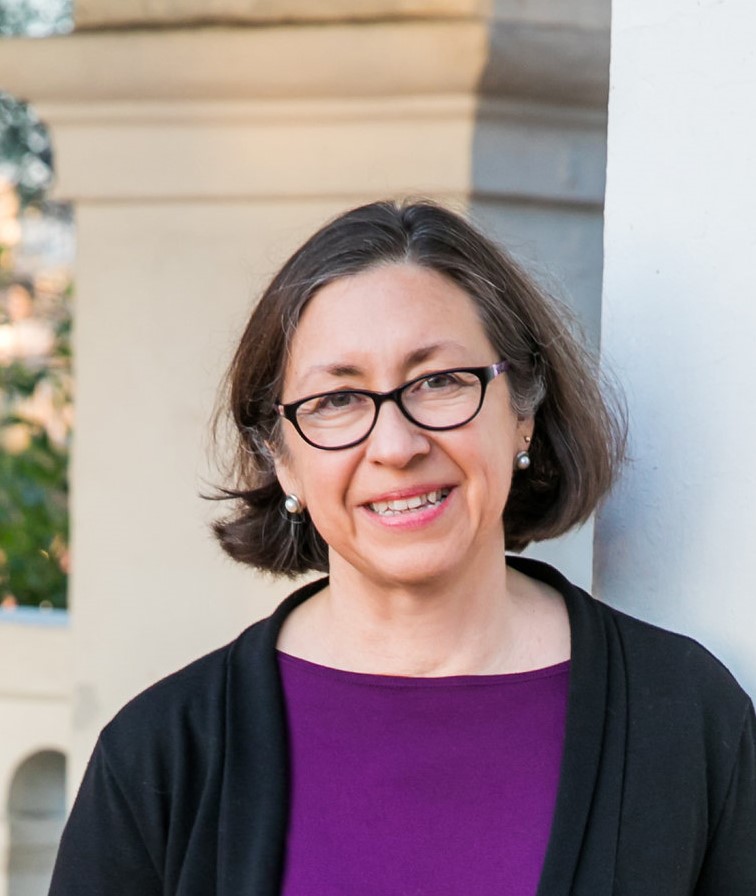
For Miriam Komaromy, MD, newly appointed medical director of the Grayken Center for Addiction at Boston Medical Center, her passion for the field of addiction medicine was largely shaped by her beginnings as a primary care doctor. After receiving her medical degree from the University of California, San Francisco, and completing her residency in Internal Medicine at UCSF/San Francisco General Hospital, she cared for an influx of impoverished patients with HIV and AIDS, mainly contracted through intravenous drug use. It was early on in the epidemic and there were little to no medical interventions available. Despite the challenge and tragedy of the time, it was quite transformative for Komoramy. “These were people who I would have never otherwise met or had a conversation with,” she explains. “Getting to know them helped me see who they were beyond the label of addiction. They were incredible human beings who ended up in this situation through an accident of fate. Something about that window into who they were allowed me to see beyond the stereotypes and stigma.”
Komaromy’s deep compassion for people with substance use disorder (SUD) spurred an influential career where she has been a leader in numerous areas of addiction medicine, including research, education and policy. In this Q&A, she shares insights around what drives her excitement for the field and her vision as medical director of the Grayken Center.
What has been the focus of your career in addiction medicine?
In many ways, my focus has been on equipping primary care providers with the ability to address SUDs in their own practice. We see so many types in the primary care setting—tobacco, alcohol, opioids—so it becomes a matter of asking, “How do we help primary care providers take on these problems as their own, in their own purview?” My work with the Extension for Healthcare Outcomes (ECHO) model has been centered around that, by providing meaningful training and workforce development to primary care providers so they feel competent to take on the treatment of addiction.
You are one of the nation’s leading clinical educators for addiction medicine. How has that tied into your work as an addiction specialist?
If you’re a heart surgeon, your goal is to do heart surgery. If you’re an addiction specialist, the best use of those skills, in my opinion, is to train primary care providers because there’s no way that something as common as SUD is going to be effectively treated by a small cohort of specialists. A useful approach is spreading knowledge and making it accessible. In addition to developing the ECHO model, which is fundamentally educational, I also lead a committee for the American Society of Addiction Medicine (ASAM) called The ASAM Fundamentals of Addiction Medicine. It’s intended to provide a fairly robust set of trainings to primary care providers so they can get up to speed without having to become addiction specialists.
What drew you to Boston Medical Center?
It’s not an exaggeration to say the specialists here have been my role models and go-to experts for a long time. I have been quoting Dan Alford, MD, MPH, Colleen Labelle, MSN, RN-BC, CARN, and Alex Walley, MD, MSc, for years. They are doing some of the most important research in the whole intersection of addiction medicine and primary care. Of course, Michael Botticelli, executive director of the Grayken Center, is someone I have looked up to and respected so much for his work on national- and state-level addiction policy.
When I came to visit BMC, I was so amazed by the level of motivation and commitment to the mission of addressing addiction that really infuses the whole organization. Everyone is so aligned, which is refreshing but also unusual in American medicine. Typically, people with addiction are shunned to the side, so to have an organization that has made it their centerpiece of what they do—and to do it in an excellent way—is pretty fantastic.
What are your plans as medical director of the Grayken Center?
Grayken’s mission is both focused on BMC as well as nationally. Over time, I will engage with both sides but my initial plans concentrate on integrating our exceptional programs so they are woven together as a seamless whole. People can get lost in the gaps between programs, so we want to optimize communications across clinics and connect patients with additional supports. This is especially important for our most vulnerable patients who are unable to advocate for themselves or navigate a complicated system. We want to make clear pathways to help them stay on track and stay connected.
What does the future look like for the Grayken Center?
We want to amplify our internal programs so we can teach people elsewhere how to do the great things happening here. Another part is to promote national regulation and legislation around SUD and to respond in a timely way to emerging policy issues. We’re also working on developing educational programs to help organizations develop their capacity to address SUD.
What is something about you that people might find surprising?
I spent this last year in Vietnam as a Fulbright Scholar. It was a fascinating experience to live in another country and get to do addiction work there. I was consulting with the Vietnamese government on issues around how to treat addiction in their country. I also had the opportunity to travel and teach in Thailand and Indonesia.
I am also an animal lover and a nature fanatic, so at the end of last year I went to Africa and did an amazing safari in Botswana. It was one of the most fascinating and exciting experiences I’ve ever had to see lions, giraffes, water buffalo, zebras and the like in their natural element. It was an incredible honor to go, and a bucket list item I wanted to do all my life.